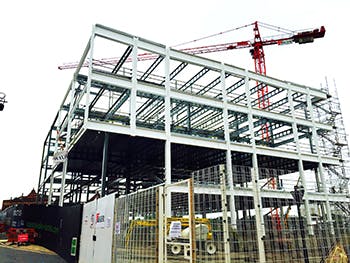UNIVERSITY NEWS LAST UPDATED : 27 AUGUST 2015

There are many skills needed to become a successful architect. Birmingham School of Architecture and Design equips students with the skills needed to be successful in the industry after graduating.
Jim Sloan, renowned architect and Leading Lecturer at Birmingham School of Architecture and Design, has travelled all over the world gracing destinations as far as Qatar, establishing a successful career in practice before turning his hand to education within the last few years.
Here are the top five skills that Jim thinks are essential to becoming a successful modern-day architect.
1. Excellent design skills
It's essential for any architect to come up with creative yet practical and viable ideas that can progress and develop into a real-life, functional piece of architecture.
2. Sell ideas whilst truly believing them
This ability will help you when working in practice, as there is often a regular competitive bidding process for work and generally the requirement of presenting to a group of people. The ability to convey an idea effectively and portray the appropriate levels of enthusiasm and desire when responding to the brief set out by the client is of paramount importance, alongside actually understanding the brief properly.
3. Seeing ideas through
There are a lot of obstacles between idea generation and completion of the project. Even small projects usually have a time-frame of months at a minimum and more likely years. Various factors have to be considered throughout the process, for example funding, how to spend the money and advise the client on the budget and what this can achieve. If you fold at the first sign of difficulty, you’re not going to make it.
4. Leading a team
Being able to work collaboratively with others to get the best out of colleagues is a great quality to have, and brings a team closer together, ensuring that the outcome is as good as it can be.
5. Understanding the roles of all people involved in the process
‘Talking the language’ enables you to engage in a conversation with other specialists, gaining respect and aiding the smoothness of the process. This also allows the architect to pinpoint exactly what the requirements are and question choices made by other specialists in an informed fashion. It’s essential that you have a basic knowledge of the following roles:
- Client
- Project Manager
- Design Team Leader
- Structural Engineer
- Environmental Engineer
- Cost Consultant/Quantity Surveyor
- Building Contractor
- Planning Consultant (Not on every project)
- Access Consultant (Not on every project)